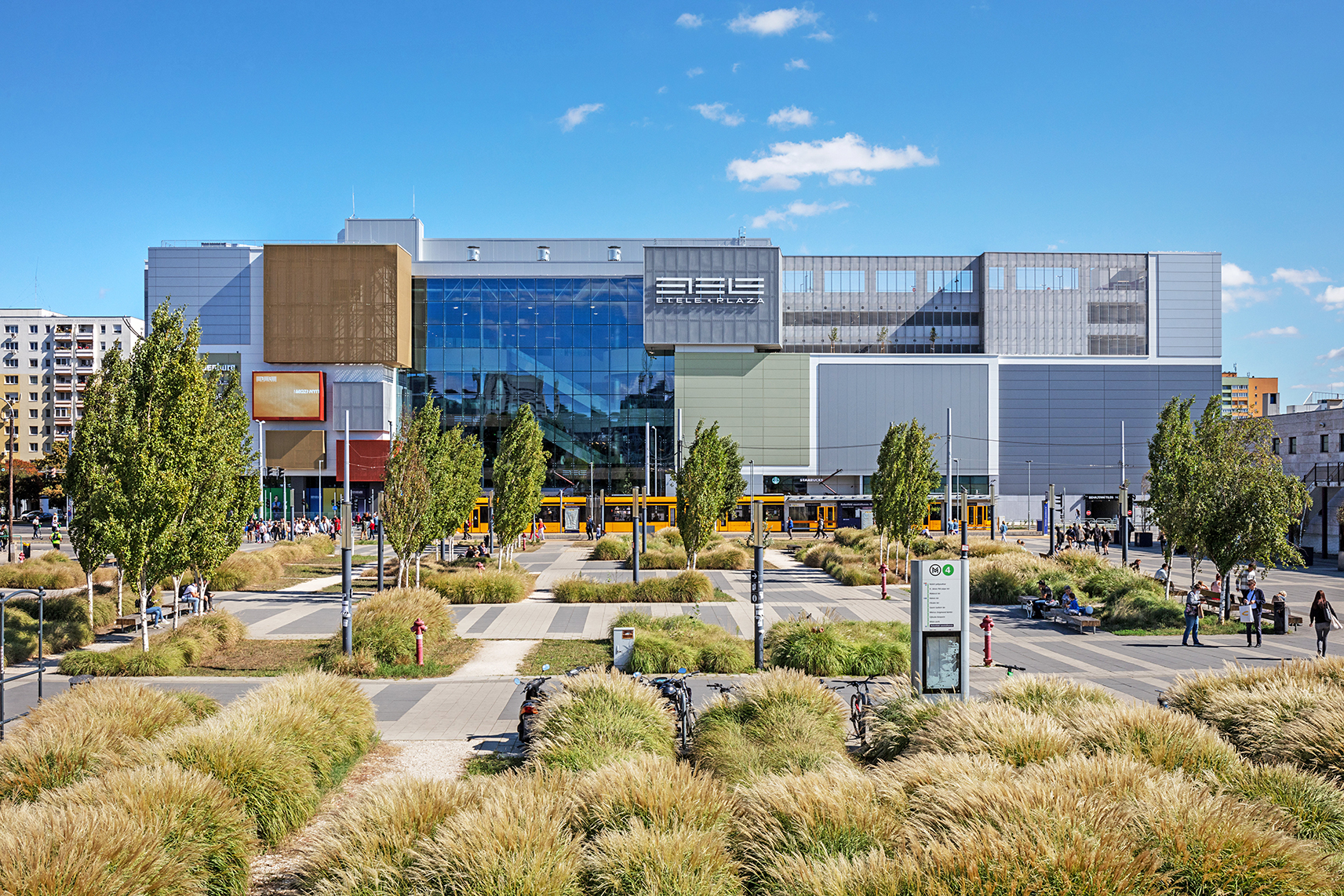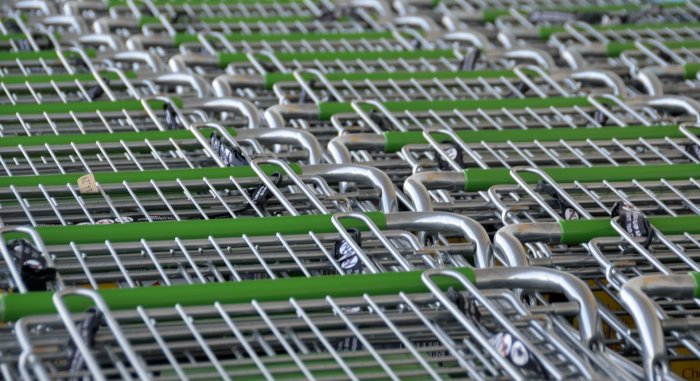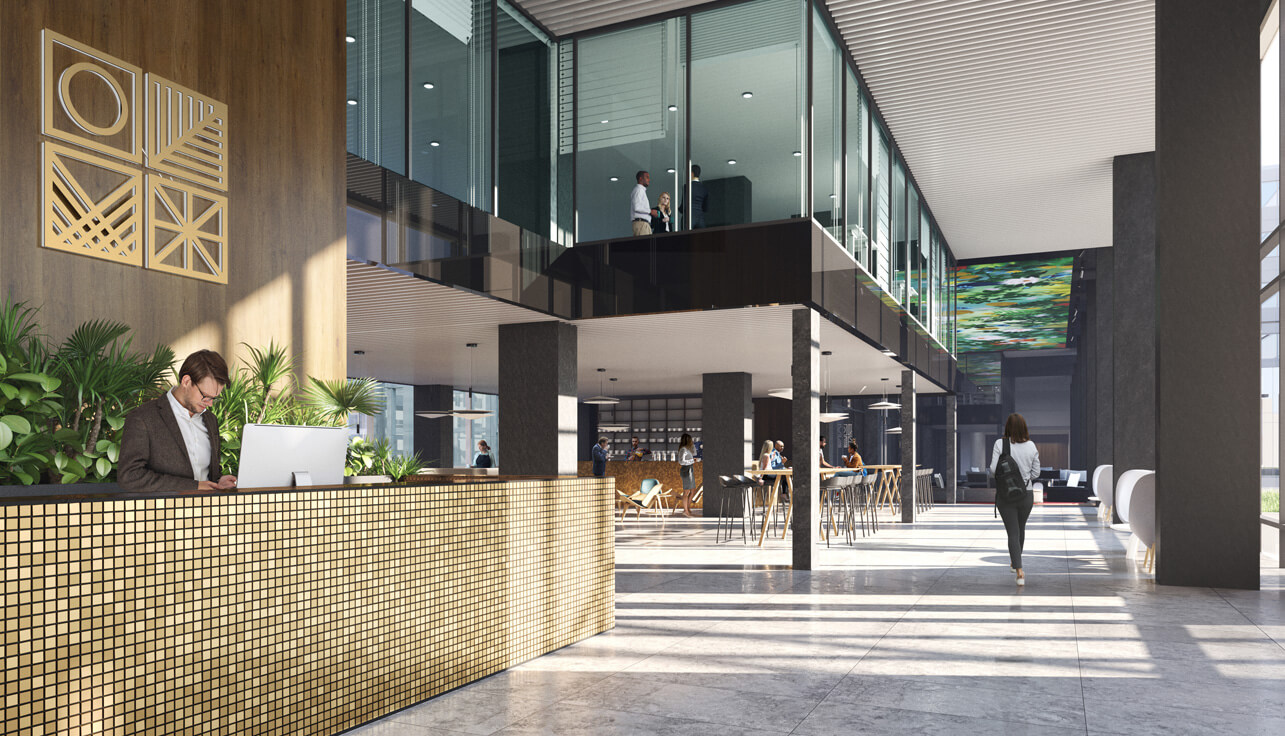E-commerce and Spending Power Concerns Continue to Constrain Retail Development

The Etele Plaza by developer Futureal was the last major mall built in Budapest. It opened its doors in September 2021.
Retail and shopping center development remains constrained by the increasing use of e-commerce and concerns over spending power. There are no major mall projects in the pipeline, with owners essentially concerned with redeveloping and upgrading their retail, leisure and service offer to enhance the retail experience and meet ever more sophisticated consumer demands.
Perceived tenant (and therefore consumer) requirements include an improved F&B offering, a more varied tenant mix and imaginative designs. Retail demand remains under considerable pressure, with the highest inflation in the EU impacting spending in Hungary.
Operational costs present continuing problems for stores as center owners are, for example, passing on increasing energy prices to tenants. The limited ongoing retail development is essentially part of larger mixed-use projects or regional retail parks.
As elsewhere in the Central European region, developers favor the development of smaller formats such as retail parks and strip malls that provide more flexibility for retailers and do not necessitate the commitment to the higher critical mass of shopping centers.
Shopping center stock in Budapest is low by European standards, and there is little prospect of oversupply with low vacancy, notably for the top-tier centers.
The 55,000 sqm Etele Plaza by the prolific Hungarian developer Futureal, which opened its doors to the public on Sep. 17, 2021, was the first new shopping center delivery in Budapest since 2011.
Analysts say it was a welcome freshening of the market as much of the existing earlier-generation stock is seen as outdated in the post-pandemic, e-commerce retail environment. Despite that, the pipeline in the traditional retail formats is very weak, and no new major mall projects are planned for the Hungarian capital.
Mixed-use is King
What new retail development there is in Budapest tends to be as part of mixed-use projects. One such ongoing project is the Zuglo Mall in District XIV by Bayer Property Hungary, which will provide around 10,000 sqm of retail as part of an office, residential and retail scheme. The developers aim to create what they term a new city quarter, and the project is due to be delivered in late 2024.
In another Budapest mixed-use project, the Hungarian private family-owned Corvin Palace Development is reconstructing the former Corvin department store building in the central Blaha Lujza tér. Described as a modern retail, leisure and office complex, the 20,000 sqm Corvin Palace will provide 16,500 sqm of retail and office space on three levels in addition to rooftop bar and restaurant space.
At a ceremony to mark the unveiling of Corvin’s original classical façade (dating to 1926 but covered in aluminum sheeting since 1967 after damage sustained in the 1956 Uprising), Mayor of Budapest Gergely Karácsony emphasized the connection between the heritage of the city and urban renewal in the redevelopment of the building.
Cushman & Wakefield puts total modern shopping center stock in Budapest at around 815,000 sqm with 1.3 million sqm across Hungary in a total of 56 malls. In addition, the country has 1.6 million sqm of retail parks and warehousing.
CBRE says it has traced about 2.1 million sqm of modern retail stock in the Greater Budapest area, including 910,000 sqm of shopping center space. Such malls represent 43% of retail stock in Greater Budapest and 22% of total space in the countryside. Outside the capital, the picture is dominated by retail warehousing and retail parks, constituting 44% and 34% of stock, respectively.
Many of the leading Budapest shopping centers have changed hands since completion, with owners planning or having already undertaken redevelopments and renovations. The top six centers in Budapest are close to full, while second-tier centers have 6-10% vacancy, according to CBRE.
In one of the latest refurbishments, the retail asset manager, Multi Corporation, as center managers and designers, have completed the EUR 18 million refurbishment of the Allee Shopping Center.
It describes a scheme to enhance the “interior and exterior design and investing in sustainability to pave the way to carbon neutrality,” and the complex has received Breeam “Outstanding” accreditation following the renovation.
ING Real Estate originally developed Allee, now owned by the investor Allianz Real Estate, represented by CBRE Investment Management. Refurbishment works started in 2020; as part of the redevelopment, the food court has been extended with more restaurants and cafes added.
Flagship Store
Retailers are expanding despite concerns over demand, consumer spending, and rising operational and energy costs. Food and beverage and sports brands are expected to extend their market presence. One of the most significant new entrants is the Irish multinational fast fashion retailer Primark, with a 4,300 flagship store in Arena Plaza.
Outside of Budapest, one area of possible retail development is retail parks with a substantial hypermarket or food content that attract brands offering less expensively-priced products. These have a lower critical mass than shopping centers and provide flexibility in lease sizes for tenants, often in areas of the country with limited modern retail provision. Several retail parks in countryside hubs are attracting investors. Adventum, for example, is committed to redeveloping 14 Tesco-anchored hypermarkets across Hungary.
“Single tenant and strip mall retail buildings in secondary Hungarian cities could be an option: in these regions, the density of retail is underdeveloped. Retail is going to expand by international/regional brands offering typically lower-priced products. These are searching for strip mall locations or first-generation shopping centers in Budapest and the countryside,” says Attila Madler, asset management director at CPI Hungary.
A recovery in overall retail sales could build momentum for the sector, although the latest August data was disappointing and proved weaker than expected. Beyond that, it is essential for any retail project to have a comprehensive offering covering the broadest possible range of consumer demand, according to CBRE.
This article was first published in the Budapest Business Journal print issue of October 20, 2023.
SUPPORT THE BUDAPEST BUSINESS JOURNAL
Producing journalism that is worthy of the name is a costly business. For 27 years, the publishers, editors and reporters of the Budapest Business Journal have striven to bring you business news that works, information that you can trust, that is factual, accurate and presented without fear or favor.
Newspaper organizations across the globe have struggled to find a business model that allows them to continue to excel, without compromising their ability to perform. Most recently, some have experimented with the idea of involving their most important stakeholders, their readers.
We would like to offer that same opportunity to our readers. We would like to invite you to help us deliver the quality business journalism you require. Hit our Support the BBJ button and you can choose the how much and how often you send us your contributions.











